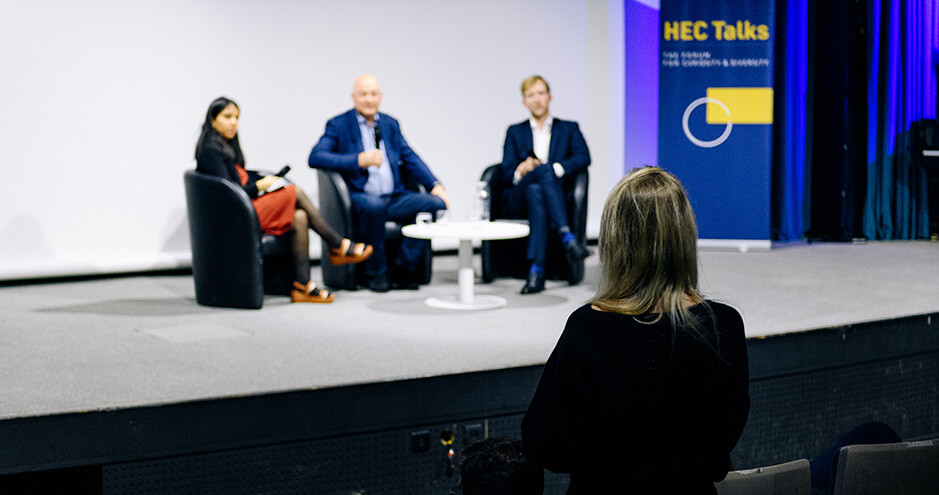HEC Talks: Unilever Boss Shares Insights into Company Turn-around
Unilever CEO since 2019, Alan Jope has stamped his leadership qualities on the consumer goods business by facing head-on the world’s social and environmental challenges. The charismatic Scotsman was the latest guest at the HEC Talks forum to provide insight into his approach to purposeful leadership and his proposals to make large organizations part of the solution to the planet’s greatest challenges.
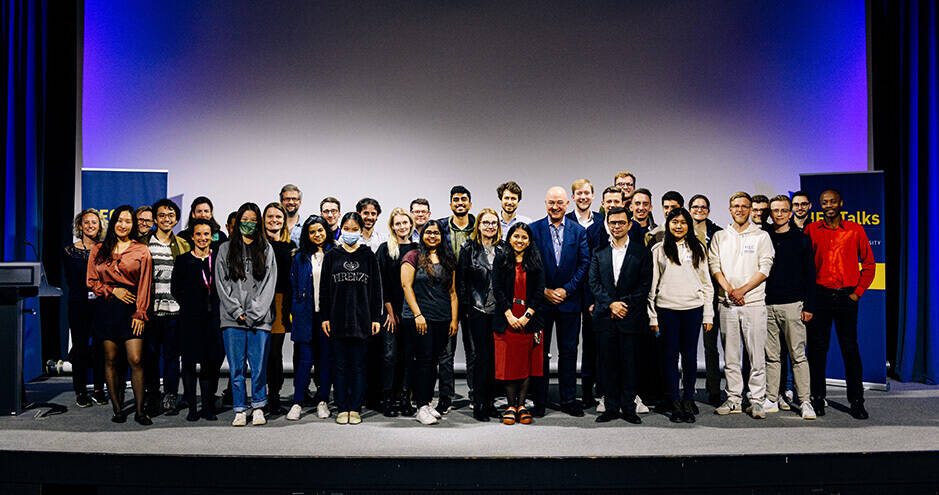
(© Ciprian Olteanu –Madetoshow.com)
“I have to admit I was reluctant to accept the job of CEO at Unilever.” With characteristic aplomb, 57-year-old Alan Jope described his initial reservations over taking on a job at the helm of a company with 150,000 employees. Spread out over 190 countries and involving 2.5 billion people every day, Unilever is the world’s largest manufacturer of nutrition, hygiene and personal care products and ships 150 billion units a year. Jope told the in-person and online audiences he agreed to take over from Paul Polman on one condition: “The decision-makers had to consent to my passions outside of work: football and my two annual motorbike trips. Because I had made a deal with myself: there are some things that are sacrosanct in life, which you cannot touch. If you can accommodate them, you can deal with the craziness of the business world.”
Such frank admissions typified the hour-long exchange with HEC staff and students on April 13. Jope started his long but inexorable ascension at Unilever in 1985 as a graduate marketing trainee in what he described as a “very diverse career”. He accepted the mantle of CEO with some clear priorities, which he made clear within months of accepting the post in 2019. “Brands without purpose will have no long-term future with Unilever,” he declared. Since then, the company’s website states it is “on a global mission to do good.” During the talk, Jope linked his commitments to his analysis of capitalism. “Historically, capitalism has done a lot of good, lifting 100s of millions of people out of poverty. But there have been a lot of negative, unintended consequences. For a start, it treats natural resources as a free commodity. From now on, we need to put a price on water, air, carbon emissions, and so on.” Jope went on to explain the need to fight local inequalities and questioned modern forms of consuming: “Our capitalist system promotes the take-make-use-dispose approach to consumption. Just the opposite to the circular models which are needed nowadays.” For the Harvard Business School graduate, a capitalism 2.0 is about to emerge: “This will combine the free market with pricing water, air, carbon.”
To achieve this, claimed the CEO, the financial system needs primarily to report its financial metrics: “Business must report its impact and quality of governance to society.” To help achieve this, Jope supported initiatives like the International Sustainability Standards Board, run by Emmanuel Faber: “In this way, companies report their impact and investors can compare their achievements before deciding where to invest.” On the other hand, Jope refuted the notion of “trade-off thinking”. “We must satisfy both the stakeholders and the shareholders, it would be dangerous to think otherwise.”
Read also
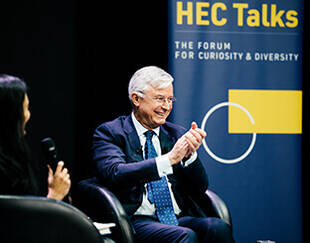
Speaking to over 100 people at the Blondeau amphitheater, ‘joined’ by a large Internet audience, Hubert Joly (H81) revealed more of the secrets behind his business successes. These have been widely...
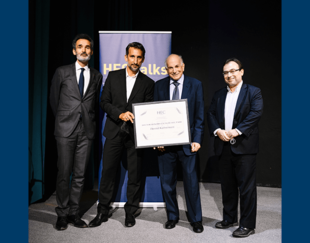
On October 7, HEC Paris granted the Princeton University psychologist and Emeritus Professor Daniel Kahneman a Doctor Honoris Causa for his lifelong achievements in the fields of cognitive psychology and...
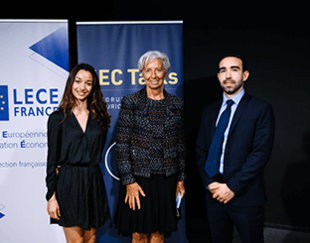
HEC Paris and the European League for Economic Cooperation (ELEC) joined forces to invite Christine Lagarde for the year’s first HEC Talks. The president of the European Central Bank talked to a hybrid...
